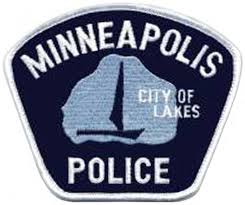A measure that would require police officers to carry professional liability insurance could be on Minneapolis ballots in November’s general election.
Members of the Committee for Professional Policing, a local police accountability group, plan to deliver about 12,000 petition signatures to the city clerk on Thursday. If enough of those signatures are verified — 6,869 are required — the group’s proposed city charter amendment will be referred to the City Council to be placed on the ballot.
The shift would give officers a direct financial incentive to stay in line, proponents say, and cut the settlements paid out by the city in cases of officer misconduct. Between 2012 and September 2015, Minneapolis spent $6.6 million on settlements. The police union’s president, meanwhile, warns that such a policy would prompt officers to interact less with the public, for fear of financial repercussions.
“This common-sense approach works much like car insurance,” Dave Bicking, the Committee for Professional Policing’s campaign chairman said in a statement. “Just like bad drivers, officers who engage in misconduct will see their premiums increase and those who don’t improve may eventually be priced out or become uninsurable.”
The group has been working on the idea for at least six years, but has faced several setbacks, including a revision of the city’s charter that forced them to rewrite an earlier proposal. The most recent signature drive began about three years ago, said Michelle Gross, president of Communities United Against Police Brutality.
Over that time, Gross said she and others have remained concerned about the city’s inability to get a handle on police misconduct issues.
“The mechanisms that exist now, like the Office of Police Conduct Review, they never worked and frankly they’re designed to fail,” she said. “We have to come up with something that isn’t controlled by the city and brings an element of external risk management.”
Gross said she’s not aware of any other cities that require police to carry professional liability insurance, though it is required for some federal law enforcement officials.
Legal questions
Before putting the measure on the ballot, city officials will need to determine if it meets the requirements for a charter amendment and examine potential conflicts with state and federal laws. In Minneapolis, citizens cannot refer issues to the ballot that create city ordinances. They can, however, attempt to make amendments to the city’s charter, which outlines the broad powers provided to the city and its offices.
Meanwhile, state law requires cities to “defend and indemnify any of its officers and employees,” so long as those employees were carrying out their official duties and “not guilty of malfeasance in office, willful neglect of duty, or bad faith.” And if the amendment were approved, changes to insurance would have to be negotiated, said Lt. Bob Kroll, president of the police union. Kroll said requiring insurance would have an unintended impact on officers’ behavior: “They’re not going to get out of their cars for anything.”
“The hard workers, the aggressive workers, the ones I would like policing my neighborhood are the ones that also get the complaints, because they’re having the contacts with people,” he said. “If you impose ridiculous things like that, the officer’s solution is career preservation.”
City Attorney Susan Segal said she has not received a formal request from the City Council to provide a legal opinion on the proposed charter amendment.
Gross said she’s confident the proposal will stand up to legal questions.
“We worked with a whole bevy of attorneys, insurance professionals, labor lawyers, a whole group of advisers to ensure that we were putting together something that was actually legal,” she said.
Erin Golden • 612-673-4790


